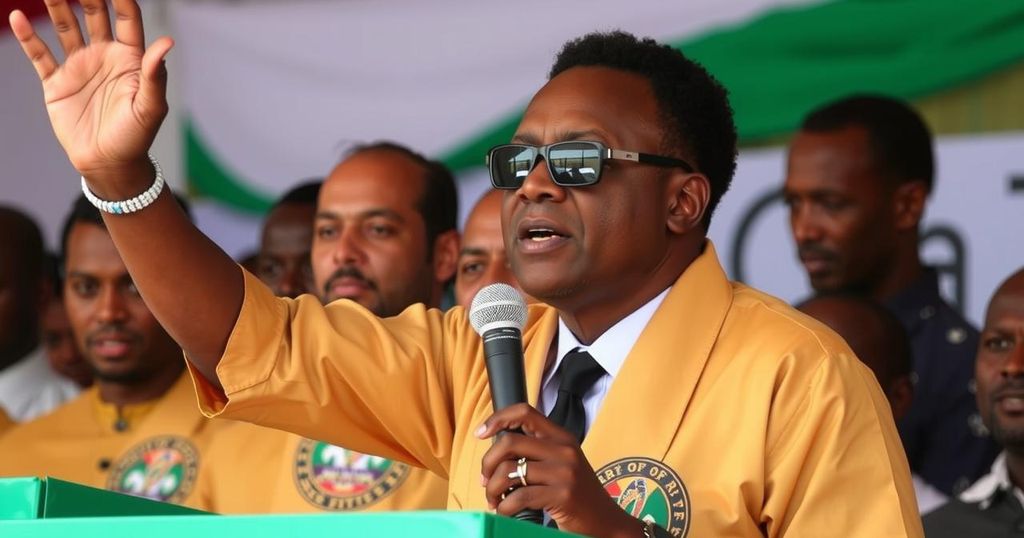Chad’s Ruling Party Secures Majority in Boycotted Parliamentary Election

Chad’s ruling party, the Patriotic Salvation Movement, won 124 out of 188 parliamentary seats in elections boycotted by major opposition parties, marking its first parliamentary election in over a decade. The voter turnout was reported at 51.5%. President Deby aims to decentralize power; however, the opposition has denounced the election’s legitimacy, reflecting concerns over democratic processes in the country challenged by security threats.
In a parliamentary election held last month, Chad’s ruling Patriotic Salvation Movement party has claimed a significant majority, reportedly securing 124 out of 188 available seats, with a voter turnout of 51.5%. This election marked the first parliamentary vote in over a decade, yet was characterized by a boycott from over ten opposition parties, including the influential Transformers party. The election results are seen as a means for President Mahamat Idriss Deby, who garnered power following the death of his father, to strengthen his political authority amid claims of an undemocratic electoral process. Observers previously criticized the credibility of last year’s presidential vote, further complicating the political landscape in Chad, which also faces various internal security challenges.
Chad’s recent parliamentary elections represent a pivotal moment in the country’s lengthy transition towards democracy, initiated after Mahamat Idriss Deby’s ascension to power in 2021. Following the demise of his father, longtime President Idriss Deby Itno, reforms and elections were promised to decentralize governance and distribute power to provincial levels. However, the ongoing security threats from terrorist groups such as Boko Haram and the deterioration of military relations with France underscore the complex environment in which these elections were conducted, raising questions about the future of democratic processes in Chad.
The ruling Patriotic Salvation Movement’s substantial win in Chad’s parliamentary election suggests an effort to solidify President Deby’s control over the nation’s political landscape. However, the boycott by opposition parties reflects significant disenchantment regarding the electoral process and its legitimacy. With ongoing security issues complicating governance, the commitment to democratic transition remains in question, leaving many uncertain about Chad’s political future.
Original Source: www.seattletimes.com







